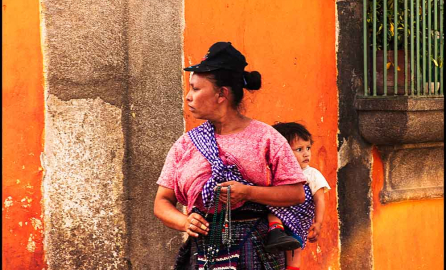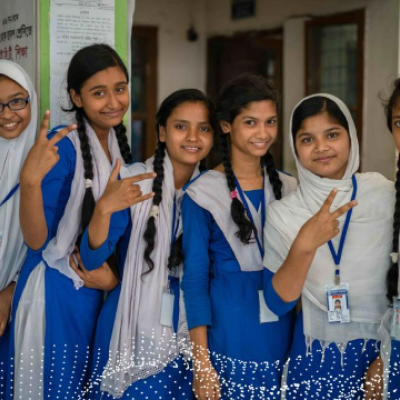One in three women is estimated to have experienced physical or sexual violence during their lifetime – a fact often hidden, and too high to be ignored. We talked to the European Union Delegations in Guatemala and Mexico about their selection for the Spotlight Initiative, and its role in a region deemed the most violent in the world for women.
Addressing inequality in Guatemala
Guatemala was announced as a Spotlight Initiative country in March, alongside Honduras, El Salvador, Mexico and Argentina; the programme is expected to be rolled out over the coming year. The lead up to the selection saw an active engagement between the Delegation, the national government UN system organisations, and counterpoints in the Commission.
“Spotlight in Latin America concentrates on femicide, which has reached epidemic levels in the region – and Guatemala is one of the worst countries,” said Tomás Pallás Aparisi, Head of Cooperation at the EU Delegation to Guatemala.
|
The Spotlight Initiative is a partnership between the European Union, the United Nations and other organisations. The Initiative aims to identify and eradicate all forms of violence against women and girls, in line with the 2030 Agenda for Sustainable Development. The EU has dedicated an initial EUR 500 million to be used in the deployment of targeted interventions across Asia, Africa, Latina America, and the pacific and Caribbean. Find out more here. |
“Among the inequalities, the most flagrant is that of women,” Pallás said.
Women from particularly vulnerable groups – such as indigenous communities or excluded populations in rural areas – suffer a double burden.
“Sexual and reproductive health is a big issue,” Pallás said, with Guatemala’s history, conservatisms, and religious beliefs all playing a contributing role.
“It is our great hope that we will have an impact on the figures of femicide in Guatemala,” he added, “and this is why we have invested so much effort.”
An ongoing priority
Gender is a priority for the EU Delegation – it’s a thematic that, alongside climate change, is a constant in much of their work. “These are transversal, horizontal themes that cut across all the interventions we are planning for the Multi-annual Indicative Programme for 2020.”
The EU Delegation’s commitment to gender issues predates the Spotlight Initiative. In 2016, the Delegation formulated a programme to tackle violence against women and children in the southern regions of Guatemala – regions where there has been little prior international involvement.
|
Watch Tomás Pallás Aparisi discuss the challenges to implementing the spotlight initiative in Guatemala: |
The programme encompasses delegated cooperation with Spain’s national development agency to tackle two main problems – the social stigma surrounding women who have been victims of violence, and the institutional components affecting gender violence.
Delegated cooperation was selected due to the ability to target the issues at a municipal level – with the Spanish Agency providing a strong partner as a result of their pre-existing presence in the country.
“I’m very hopeful that this programme is going to change the perception of violence against women in that region, and that it will help the authorities and the citizens to improve their living conditions,” said Pallás, adding that the process has already shown positive outcomes in a number of municipalities, NGOs and social councils.
“We think that we can make a real difference on the ground; we can really have an impact.”
An issue high on the agenda
In Latin America, of the 12 women assassinated every day, 7 come from Guatemala’s neighbour to the north, Mexico, said Klaus Rudischhauser, Head of Delegation to the Delegation of the European Union to Mexico.“The country is one of EU’s strategic partners; this issue has been and should continue to be high on our bilateral agenda.”
The EU Delegation to Mexico has long engaged with civil society and government agencies, and the Spotlight Initiative, Rudischhauser said, will have substantial buy in from key actors in the country. “We think that we can make a real difference on the ground; we can really have an impact,” he added.
Rudischhauser also stressed the importance of increased regional cooperation. In addition to peer pressure from governments, civil society and the private sector, regional cooperation can contribute to a more successful implementation, he explained.
|
Watch Klaus Rudischhauser explain the biggest challenges to rolling out the Spotlight Initiative in Mexico: |
At the same time, given the sheer size of the country and expected challenges, Rudischhauser said that a strategic and innovative approach should be developed. “We are realistic… we will select federal states on the basis of several criteria, i.e. states where the prevalence of feminicides is high, states where are developing good practices and/or states where there is willingness by the local government to work with us.”
Image credit: Pedro Szekely/Flickr via Creative Commons license 2.0.
This article was written by Craig Hill, Journalist and Content Editor at Capacity4dev.




Log in with your EU Login account to post or comment on the platform.